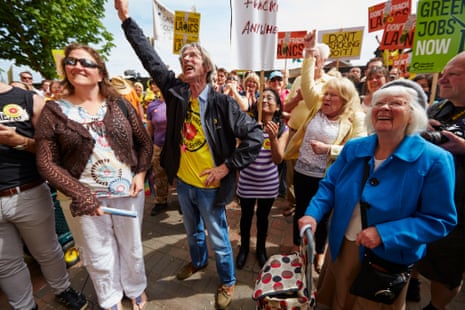Be in no doubt, it is a seismic decision. Nine county councillors have defied the full-throated backing of David Cameron, well over £100m of spending from shale gas firm Cuadrilla and their own planning officers to reject plans for the UK’s first full-scale fracking.
Cuadrilla are near certain to appeal, but the nascent fracking industry in the UK may never recover from this blow. Councillors around the country will feel emboldened to stand up to the intense national pressure to back fracking. In the future, this may well be seen as the day the fracking dream died.
In the shorter term, the rejection is set to present an excruciating decision for Cameron’s government.
The legal process could end up with the final planning decision landing on the desk of Communities secretary Greg Clark. He, and the cabinet, will face the dilemma of forcing through the government’s shale gas policy or accepting the wishes of affected communities, as expressed by their elected representatives.
This will be made all the more agonising by the Clark’s loudly trumpeted move to empower local people to veto onshore wind farms. Trusting local people on wind but not on fracking would look like hypocrisy.
The Lancashire decision is seen as a surprise, largely because it overruled the council’s planning officers who had recommended approval of the Preston New Road site. The officers, ploughing through thousands of pages of evidence, had found no fault with Cuadrilla’s plans for drilling and fracking and also with measures relating to air quality, greenhouse gas emissions, earthquakes, water use and visual aspects. The only dissatisfaction with a second site - Roseacre Wood - was heavy traffic.
But the decision is less surprising than some may think: the mood has been turning against fracking in the UK for some time.
In the last 18 months, opposition from the public has swelled from 29% to 43%, now comfortably outnumbering the 32% in favour. The bungled attempt by Cuadrilla to drill at Balcombe in Sussex in the summer of 2013 was, as I wrote at the time, a public relations disaster that felt like the “Monsanto moment” faced by genetically modified crops 17 years earlier: an introduction so botched that it renders the technology unacceptable on arrival. Shoddy early practice by the frackers - trespass and planning permission breaches - did not help.
More recently, there was another ominous signal for the frackers. Lord John Browne, the former BP boss and sometime oiler of government wheels, quietly departed Cuadrilla. The shale gas industry still has friends in high place of course, not least Cameron and his promise to go “all out” for fracking and the new energy secretary Amber Rudd pledging to “deliver shale”.
The problem, which may finally start sinking in today, is that zealots are scary.
An argument can be made that gas is relatively low carbon, that domestic gas is more secure and that UK regulation far stricter than that in the Wild West of the US where fracking began. But unfounded claims of energy bills falling and ludicrous promises of huge numbers of jobs cut the credibility of such arguments off at the knees. Sober voices, from the International Energy Agency to the CBI to Deutsche Bank have warned for several years that fracking in the densely populated UK was a very tough sell.
The industry and government have tried the hard sell, with millions of pounds offered to local communities. But in, the first big test, the people of Lancashire simply didn’t buy it. The prospects for UK shale gas have never looked bleaker.

Comments (…)
Sign in or create your Guardian account to join the discussion